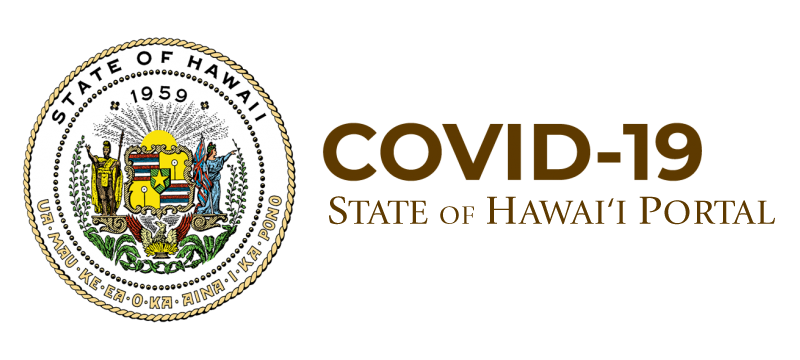After months of planning, Department of Health & partners to begin vaccination effort upon FDA Emergency Use Authorization
Initial phase includes high-risk health workers, long-term care facilities
HONOLULU – Governor David Ige, Hawai‘i State Director of Health Dr. Elizabeth Char, and other stakeholders today laid out the first steps of Hawai‘i’s COVID-19 vaccination effort, including plans to distribute an expected 81,000 doses of COVID-19 vaccinations in the month of December to high-risk health care workers and long-term care facilities across the state.
Earlier today, the U.S. Food and Drug Administration (FDA) Vaccines and Related Biological Products Advisory Committee recommended Emergency Use Authorization of the Pfizer-BioNTech COVID-19 vaccine. This recommendation must be adopted by the FDA, which is expected in the coming days.
Pfizer will pre-position the first shipment of 4,875 doses of vaccine in Hawai‘i, but providers will not be able to begin to vaccinate groups in the first phase until the U.S. Centers for Disease Control and Prevention (CDC) Advisory Committee on Immunization Practices (ACIP) provides guidance on who can be vaccinated. ACIP guidance is expected in the coming days.
“This pandemic has cost Hawai‘i residents so much—the lives of loved ones, our health, and our economic security,” said Governor David Ige. “The recommendation by the FDA panel to approve the Pfizer vaccine is a vital step in keeping our situation from becoming worse and beginning our road to recovery. Once final approval is granted, I am confident in the Department of Health’s ability to distribute vaccines across Hawai‘i.”
“Just hours ago, the FDA’s committee of experts voted overwhelmingly in favor to recommend Emergency Use Authorization of the Pfizer-BioNTech COVID-19 vaccine. We are optimistic that the FDA will grant the Emergency Use Authorization soon,” said Dr. Char, “However, we know that our work is just beginning. After months of planning, we are prepared to join with our partners to distribute the first shipments of a vaccine. As there will not be enough vaccine for everyone at first, we must first care for those who cared for us—essential healthcare workers and kupuna in long-term care facilities.”
The first phase of Hawai‘i’s COVID-19 Vaccination Plan is divided into three groups:
- Phase 1a – Essential healthcare workers
- Phase 1b – Essential workers
- Phase 1c – 65 years and older and adults with high-risk medical conditions
Upon ACIP approval and guidance being issued on the Pfizer vaccine, Hawai‘i will move into Phase 1a. ACIP guidance could also lead to changes in prioritization. As new information and guidance becomes available, the state plan may be adjusted based on the national recommendations from ACIP, which is expected within a few days.
The Hawai‘i State Department of Health is working in close coordination with federal partners, the Hawai‘i National Guard, the Healthcare Association of Hawai‘i, and medical providers to accept and dispense the first shipments of COVID-19 vaccines.
Hawai‘i’s Phase 1a distribution focus will begin with high-risk health workers involved in direct patient care and workers who provide transportation, environmental services, and other healthcare facility services and who are at risk of exposure; and residents and staff of congregate long-term care facilities.
Following the vaccination of these groups, Phase 1b and 1c populations include first responders and essential workers, adults with high-risk medical conditions, and adults 65 or older.
The Moderna COVID-19 vaccine is scheduled to be evaluated by the federal Vaccines and Related Biological Products Advisory Committee on Dec. 17. If approval is granted, Hawai‘i is expected to receive 36,000 doses of the Moderna vaccine, in addition to nearly 46,000 doses of the Pfizer vaccine in the month of December alone.
Essential health care workers will be vaccinated at Points of Dispensing (PODs) across the state. Vaccinations will be administered to long-term care facilities through a federal partnership with Walgreens and CVS.
Both the Pfizer and Moderna vaccines require a two-dose regimen. The second dose must match the brand of the first dose. The second dose of the Pfizer vaccine needs to be administered not less than 21 days after the first dose, while the Moderna vaccine needs to be administered at least 28 days following the first dose. Following the administration of the first dose, the state will be able to order additional supply.
Additional vaccine supply is expected in the first half of 2021.
# # #
Denby Fawcett: Why So Few People Are Getting The New Covid Shot
Experts are worried about the lack of interest as people are still suffering from the virus and long Covid. By Denby Fawcett Original article on Civil Beat, November 7, 2023 I keep a card in my [...]
Federal Public Health Emergency (PHE) for COVID-19 ends on May 11, 2023
HONOLULU, HI –The federal Public Health Emergency (PHE) for COVID-19, declared under Section 319 of the Public Health Service Act, will expire at the end of the day on May 11, 2023. As the PHE [...]
Seniors now eligible for additional COVID-19 bivalent booster dose, COVID vaccine recommendations simplified
HONOLULU, HI – The Hawai‘i Department of Health (DOH) supports the latest recommendations announced yesterday by the Centers for Disease Control and Prevention (CDC), allowing an additional dose of the bivalent booster against the virus [...]
Hawai‘i COVID-19 hospitalizations on the rise
HONOLULU, HI – The Hawai‘i Department of Health (DOH) reports a rise in the rate of COVID-19 hospitalizations. The number of total positive COVID-19 hospitalizations has increased over the past week (3/26 – 4/4) from [...]
Wastewater Samples Show Higher COVID Concentrations & New Subvariant
The Hawai‘i State Department of Health’s most recent Wastewater Surveillance Report documents two significant developments about COVID-19 in Hawai‛i. Higher concentrations of the virus that causes COVID-19 The arrival of the XBB.1.5 subvariant Higher concentrations [...]
Bivalent boosters for keiki as young as 6 months
Updated COVID-19 bivalent boosters are now available in all counties for keiki as young as six months of age. The U.S. Food and Drug Administration (FDA) amended the emergency use authorization for the bivalent boosters [...]
